Pride Month serves as a reminder of the progress made for LGBTQ+ representation worldwide, and is a special opportunity to highlight LGBTQ+ owned businesses. Helping shoppers learn about these companies encourages support beyond the month of June, especially when visibility is more important than ever: Even though more than 50 years have passed since the Stonewall uprising, discriminatory anti-LGBTQ+ legislation and backlash against major companies for their LGBTQ+ representation are rising at an alarming rate.
“Queer entrepreneurs are going to look at the world differently because the world is not always a safe or kind place for us,” says Helen Russell, a co-founder of Equator Coffees. “Increased exposure for these brands can mean new allies, not just new customers.”
We spoke to Russell and several other LGBTQ+ business owners to learn more about the successes and challenges they face. Below, we dive into some of those realities, as well as some of our favorite products from these brands.
SKIP AHEAD Notable products from LGBTQ+ owned businesses | LGBTQ+ owned brands | LGBTQ+ owned businesses in 2023
Notable LGBTQ+ owned brands to shop
LGBTQ+ owned businesses are defined as being at least 51% owned, operated, managed and controlled by a person or persons who identify as part of the LGBTQ+ community (including non-binary and gender non-conforming individuals), according to The National LGBT Chamber of Commerce (NGLCC), a nonprofit that serves as the third-party certifying body for Certified LGBT Business Enterprises (LGBTBEs). The following products are standout items from LGBTQ+ owned businesses we think you should know about.
Automic Gold Small Seamless Huggies
Al, Automic Gold’s non-binary founder and designer, started making their own jewelry because they “couldn’t find fine jewelry that wasn’t too feminine or masculine that I could fit or afford.” Al says all of the brand’s jewelry is genderless and size-inclusive — it’s made in-house from locally sourced reclaimed materials. Automic Gold sells bracelets, rings, necklaces and earrings, as well as charms and body jewelry.
Automic Gold’s Small Seamless Huggies have a click closure and can be purchased as a pair or individually. They sell yellow, white or rose gold.
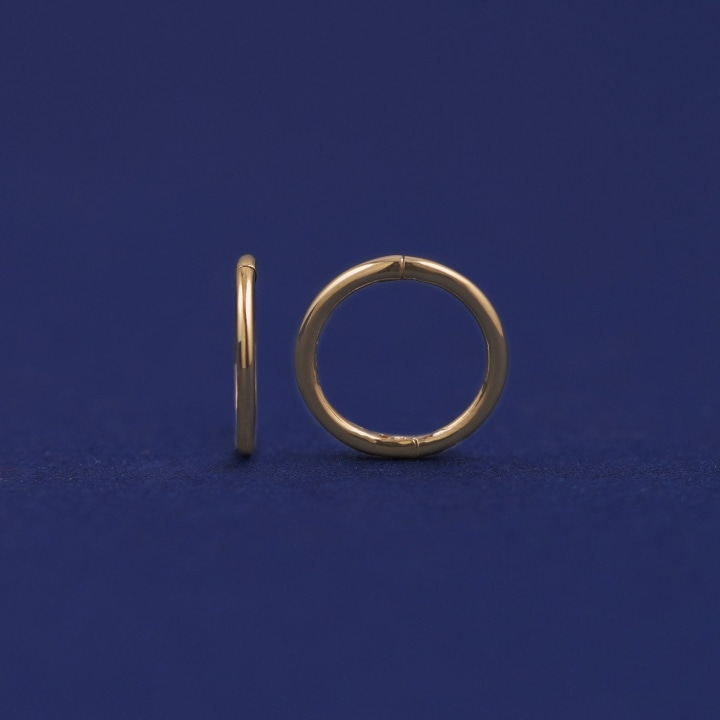
Bokksu Snack Box Subscription
Danny Taing, founder and CEO of Bokksu, which works with centuries-old snack-makers across Japan, started his company when he couldn’t find his favorite local Japanese snacks in the United States. “As an Asian-American with deep roots in both identities, I saw a big opportunity to bridge both Asian and American cultures and share Japanese culture with the world,” he says.
As a gay Asian man, Taing says running his company “sometimes feels very daunting because many investors and partners don’t immediately relate to Bokksu and me.” However, he notes “being gay has also helped me find tightly-knit peers and support,” and that over time, he’s made friends and created a network with business owners of shared backgrounds.
Bokksu’s Monthly Subscription Box comes with Japanese snacks, candies and a tea pairing curated around a cultural theme.
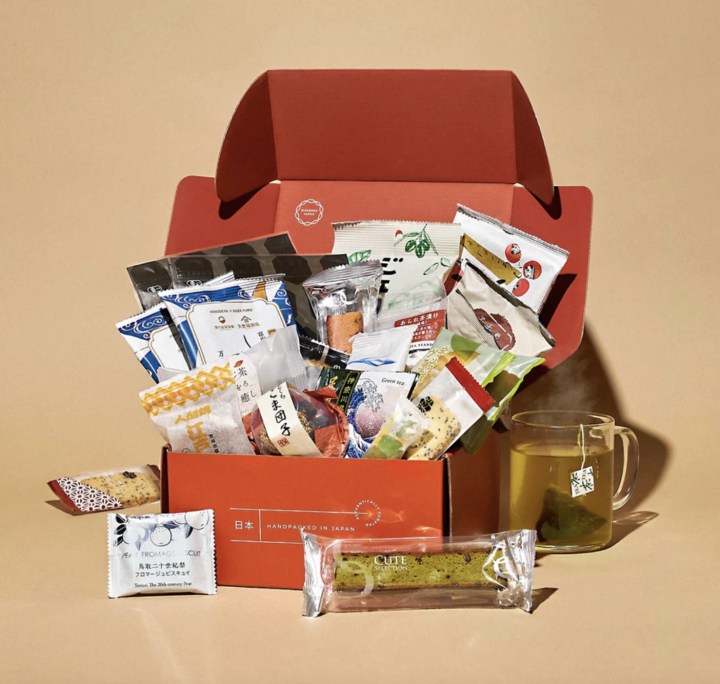
Byoma Creamy Jelly Cleanser
Marc Elrick, founder and CEO of Future Beauty Labs, which owns skin care brands like Tan Luxe, Tanologist and Isle of Paradise, says he got his start in cosmetics to promote inclusivity and celebrate individuality. “Beauty and how it makes you feel should be the most inclusive and supportive community,” Elrick says. “Gay culture and the beauty industry have been intertwined for basically forever helping to define trends — [and] as a gay founder, I’m lucky to have the opportunity to drive that inclusivity even further, and give credit where credit is due.”
Byoma, one of the many beauty brands founded by Elrick, is a skin care brand that offers serums, moisturizers, toners, cleansers and more that are aimed at repairing the skin’s moisture barrier. The Creamy Jelly Cleanser has a lightweight, creamy formula that has a combination of ceramides, cholesterol and fatty acids, as well as antioxidant-rich licorice root and green tea extracts, to help brighten the skin’s complexion, according to Byoma.
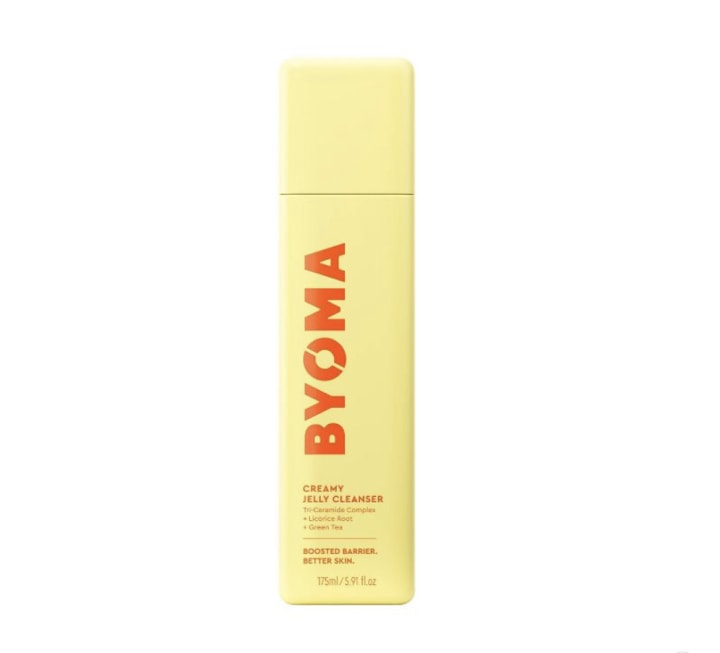
Equator Coffees Equator Blend
Helen Russell and her partner Brooke McDonnell are the co-founders of Equator Coffees, which they’ve run together for over 25 years. According to Russell, Equator Coffees has been successful due to its supportive community, but she often finds herself worrying about homophobic legislation. “For me, knowing that there were places I was excluded from and people who wouldn’t see and respect my humanity drove me to create a brand that valued every person involved,” Russell says. “Coffee is such a connective and loved product that it can be a bellwether of a new way of doing business. Coffee farmers should be well paid and valued, baristas and roasters should thrive at work and cafes should be safe community spaces.”
Equator Coffees sells bags of its blends, espressos, cold coffees and instant coffee, as well as brewing equipment, grinders, filters, mugs and more. The brand’s Equator Blend has a chocolatey, nutty and spicy flavor. It’s a medium-dark roast and can be purchased as a 12-ounce, 2-pound or 5-pound bag.
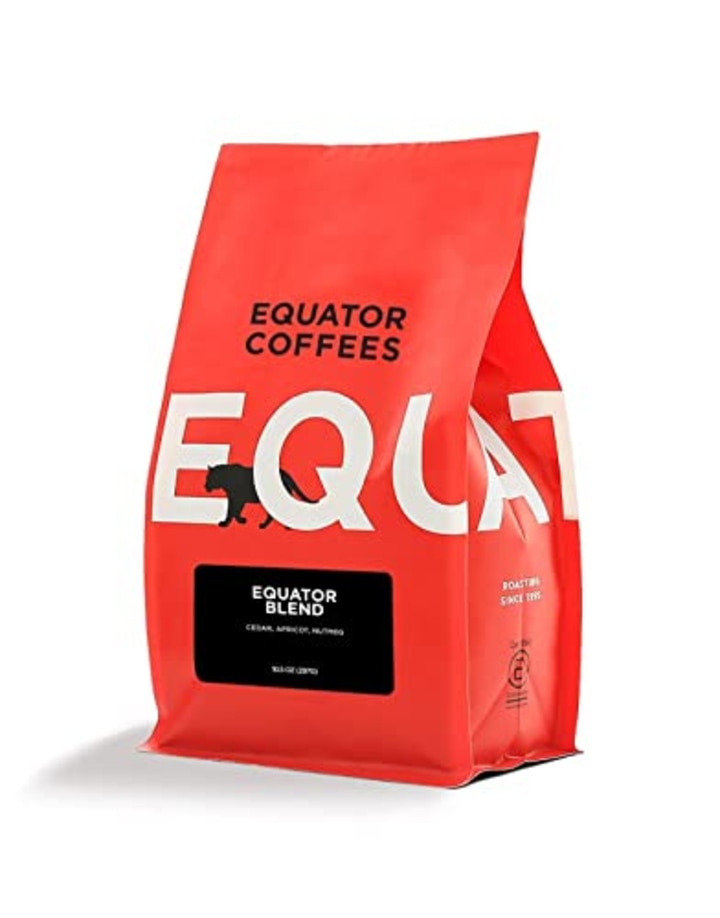
Flipstik 2.0
Flipstik is a Black-owned, LGBTQ+ owned business — its owner, Akeem Shannon, says he faces similar challenges as many minority-owned business owners: a “lack of access to funding, discrimination and insecurity in being a minority-owned business.” For Shannon, Pride Month is about being proud to have made his work a business at all and to make inclusive products that extend to people from every community — and give back to those who helped him and the company get to where they are today.
After reading “The Alchemist,” Shannon began looking to the world around him for a clue about where his life was headed. That sign came in the form of his uncle, a NASA engineer, who Shannon ended up speaking to about a reusable adhesive that NASA researched in the 1980s. This conversation sparked the idea of Flipstik (and Flipstik 2.0), a paper-thin accessory that you attach to the back of your phone to stick your phone to various surfaces and watch TV or record videos. You can also use it as a kickstand for your phone when it’s sitting horizontally.
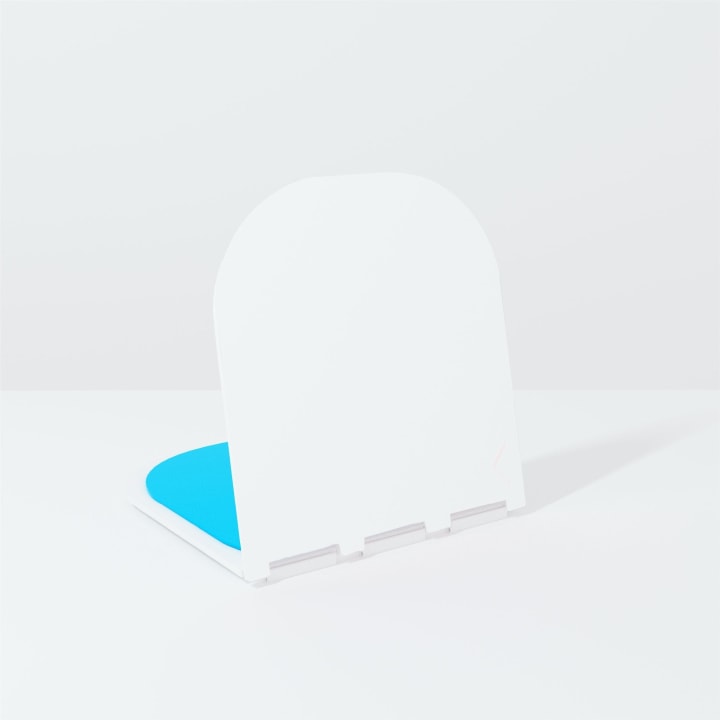
Ghost Democracy Cocoon Replenishing Ceramide Rich Cream
Ghost Democracy was founded by Rex Chou to offer direct-to-consumer clean skin care products.“It’s more important than ever to demonstrate that inclusivity to the consumer. Representation matters and is so impactful,” says Chou, who worked in various big beauty corporations for the past decade before starting his own company.
Free from silicones, oils and fragrances, the Cocoon Replenishing Ceramide Rich Cream from Ghost Democracy works to deeply moisturize and replenish the skin and its texture. It is non-greasy and quick-absorbing, according to the brand. The cream is good for all skin types, according to the brand, and Ghost Democracy recommends applying it to clean skin every morning and night.
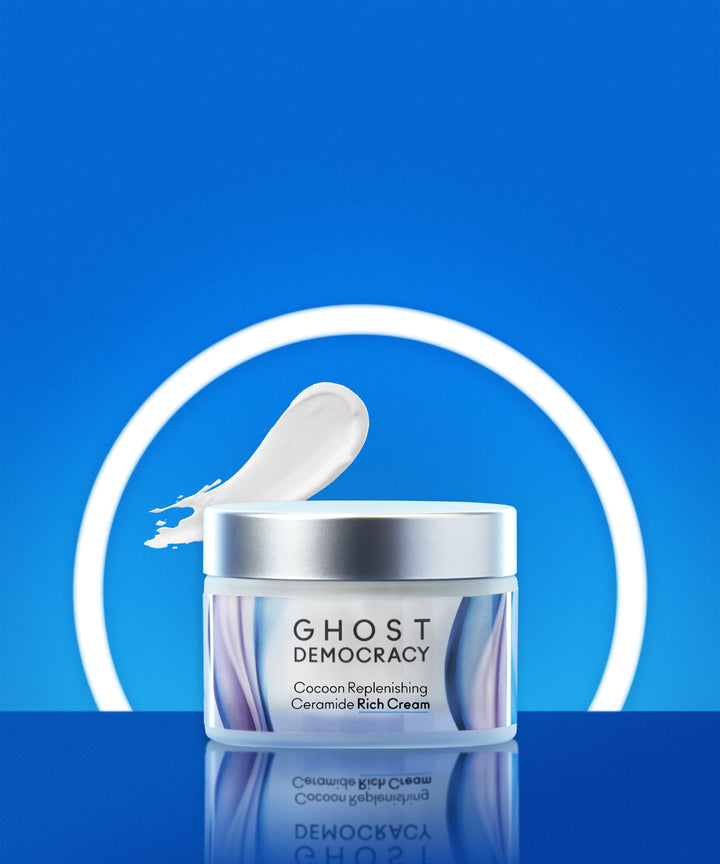
Kirrin Finch The Ray Geometric Short Sleeve Shirt
When Laura and Kelly Moffat, self-described tomboys, were searching for clothes for their wedding, they realized “how difficult it is to find alternative options to a wedding dress.” This reinforced decisions they’d both had to make throughout their lives. Laura Moffat, who also serves as the brand’s director of marketing, says growing up, she and her wife were “often forced to make the choice between poorly-fitting menswear and super feminine womenswear.”
After speaking to women, transgender men and non-binary folks, she found that many felt like their clothes didn’t allow them to fully be themselves. Moffat and her wife quit their jobs to start the clothing company Kirrin Finch, which “aims to fill the gap for gender-defying fashion by creating menswear-inspired apparel designed to fit a range of bodies.” Kirrin Finch’s The Ray Geometric Short Sleeve Shirt is available in sizes 0 to 24. It’s made from 100% cotton and has a collar as well as a nine-button front.
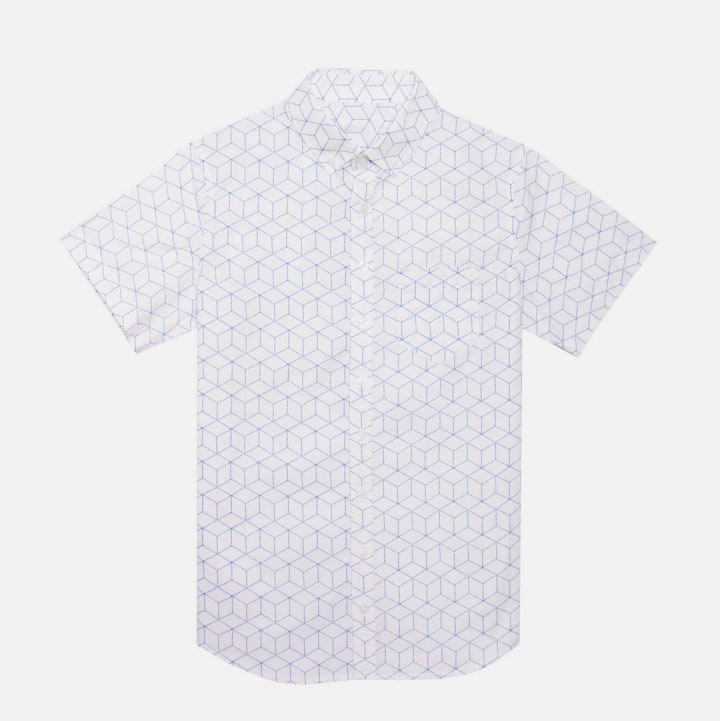
Pink House Alchemy Vanilla Bean Simple Syrup
When Emily Lawson, the founder of Pink House Alchemy, was working at a farmers market, she bought lavender from the booth across from her and began making lavender syrup for her lattes and lemonades. “As a woman-owned business, you’re already on the outside of the ‘handshake’ boys club model of doing business,” she says. “The added layer of being a member of the LGBTQ+ community reduces that access considerably.”
The brand’s Vanilla Bean Simple Syrup contains natural ingredients and no additives or dyes, alongside its other simple syrups, including Mexican Chile and Cardamom.
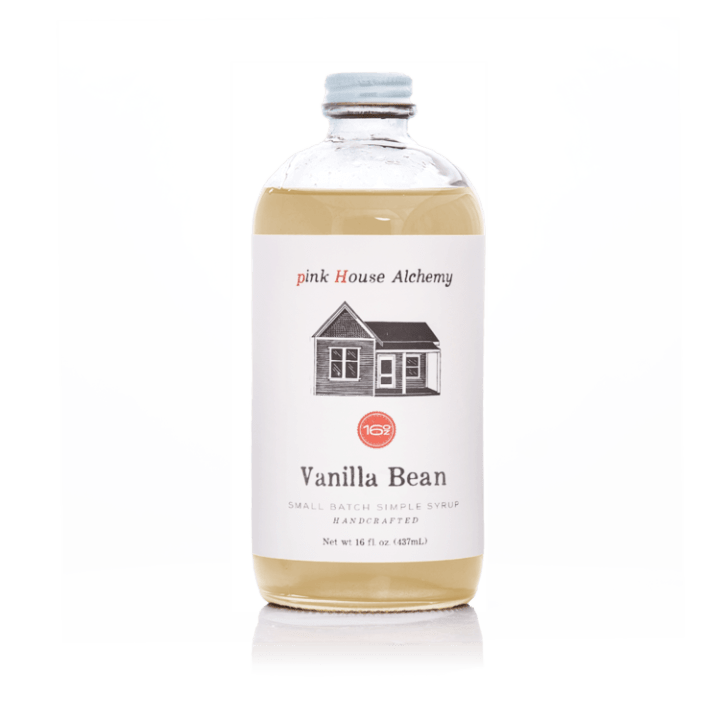
Souk Bohemian Abstract Jumpsuit
Souk Bohemian founders Vanessa Vernon and Morgan-Ashley Bryant created the brand in 2016 after visiting Morocco, where they were inspired by the rich culture, art and artisans they found in Moroccan markets, called souks. But most importantly, Souk Bohemian centers on being inspired by and crafted for women of color. “There aren’t many people who look like us who own businesses and are able to have this kind of platform, so we take that very seriously because we understand that we’re telling them, ‘You can absolutely do something like this, there are other people in these spaces,’” Bryant says. And seeing Black folks, especially women and those that form part of the Queer community, resonating with the products in the store is what it’s ultimately all about. “We understand why Pride is important for many, but we do this every day for our community. No matter what holiday or non-holiday it is, we live this life consistently and authentically,” Bryant says.
The brand’s unisex jumpsuits, which are some of their bestselling items, are designed with the faces of Black and Brown folks, particularly Black women. “A lot of times, you don’t see us, whether that’s on a T-shirt or the fabric that’s manufactured, the features never look like us, so we’re very particular about that,” Bryant notes. Souk Bohemian also offers a variety of clothing options, including jackets, bags and dresses, as well as home goods like candle holders, dinnerware and decor.
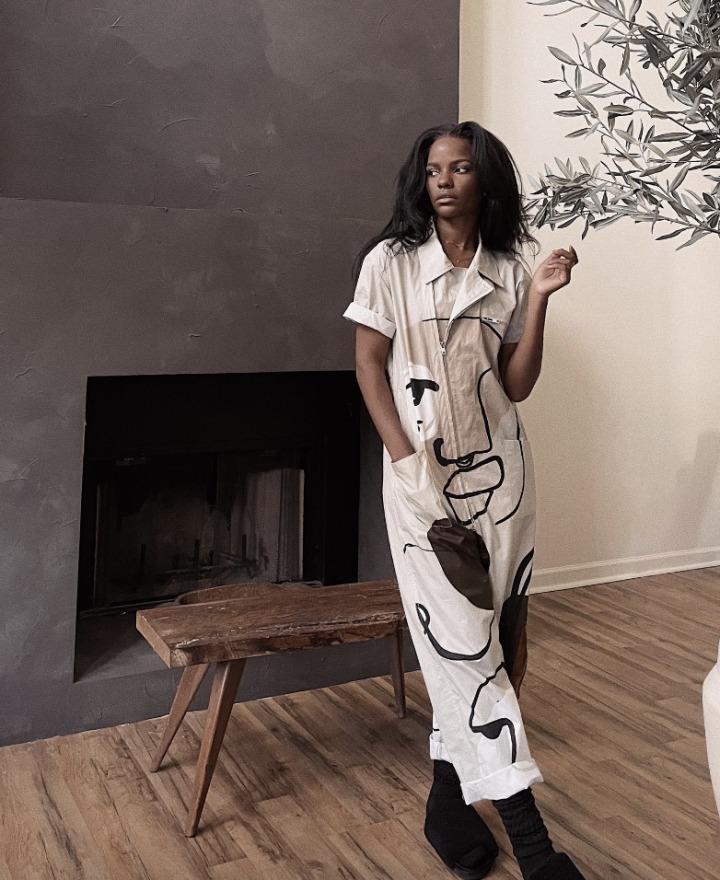
LGBTQ+ owned brands: Clothing, beauty and more
Since there’s limited information available on LGBTQ+ owned businesses, we reached out to the brands below and asked them to confirm that at least 51% of their company is owned by someone who identifies as part of the LGBTQ+ community. In addition to the brands highlighted on this list — of which there are still not enough — you can also turn to the Human Rights Campaign’s Corporate Equality Index to find the extent to which brands support Queer artists, authors, drag performers and donate to Queer advocacy organizations like the Audre Lorde Project, Lambda Legal and The Trevor Project.
LGBTQ+ owned apparel and accessory brands
LGBTQ+ owned beauty brands
LGBTQ+ owned home and kitchenware brands
LGBTQ+ owned food and drink brands
LGBTQ+ owned pet brands
LGBTQ+ owned businesses in 2023
The NGLCC has certified 2,000 LGBT Business Enterprises (LGBTBEs) to date, and it estimates that there are 1.4 million companies run by members of the LGBTQ+ community in the U.S. But concrete data about how many LGBTQ+ owned companies there are in the U.S. is scarce — federal agencies like the Small Business Association, Census Bureau and Bureau of Labor Statistics don’t have data on LGBTQ+ owned businesses and aren’t actively collecting it the same way they are for AAPI- or Latino-owned companies, for example. That’s why organizations like the NGLCC step in to fill in the gaps, as do individuals like Charlie Sprinkman, who created the Everywhere Is Queer map to illustrate the global spread of LGBTQ+ owned businesses across the planet.
The NGLCC told us they’re working with multiple federal agencies — including the Department of Commerce and the SBA — to rectify this federal data gap. The most recent report illustrating LGBTQ+ business data is NGLCC’s America’s LGBT Economy was released in early 2017. It’s also the first-ever snapshot of the economic and social impact of LGBTQ+ business owners and entrepreneurs in the U.S., according to the NGLCC.
Many federal agencies are also working with statistical agencies on how to measure gender identity and sexual orientation on their surveys. The Bureau has added new questions about sexual orientation to their surveys in recent years, and they collect information about same-sex households in their demographic surveys, but that isn’t a comprehensive measure of the LGBTQ+ population, experts told us.
While there are some government programs aimed to help minority- and women-owned enterprises and entrepreneurs, LGBTQ+ owned businesses aren’t offered the same resources. Bob Witeck, president of Witeck Communications — the first certified LGBTQ+ business in the U.S. by the NGLCC — says federal data collection, inclusion and protection of rights for LGBTQ+ business owners and employees is an important issue since opportunities and inclusion may vary by state.
“LGBTQ+ people are defined in their families and their lives by arcane rules state by state,” Witeck says, adding that the owners of LGBTQ+ businesses may be facing “anxiety and difficulty with things like credit and credit lines, lending, borrowing” due to unequal access.
In fact, Souk Bohemian’s Bryant says securing funding was the most difficult part of starting their business. “The challenge that always comes to mind first is that, when we first opened our store and signed a new lease, every lender, every bank, anyone with money told us ‘no,’” she says, adding that she and co-founder Vernon relied on friends, family and people in their community to help build their brand, instead. “It’s a system that we know is not built to help us succeed,” she says.
But amidst the deep-set challenges of starting a business combined with the slew of anti-LGBTQ+ policies and backlash toward pro-LGBTQ+ campaigns in recent years, there is still support for the LGBTQ+ community in the business sphere. A December 2022 survey conducted by GLAAD and Edelman Trust Institute found that more than 51% of U.S. employees said they were more likely to work for a pro-LGBTQ+ company, compared to 11% who said they were less likely. Similarly, the survey found that 53% of Americans expect CEOs to inform and shape conversations and policy debates about LGBTQ+ rights. Because our relationship with these companies is transactional, we can motivate them to strengthen organizational and policy commitments to LGBTQ+ workers, too, says Kristin Comefero, an associate professor of communication specializing in LGBTQ+ representation in mainstream marketing.
In May 2022, New Jersey Governor Phil Murphy signed an executive order to establish a state-backed program to certify LGBTQ+ owned businesses — following California, Massachusetts and Pennsylvania. The order means that LGBTQ+ owned businesses and LGBTQ+ identifying business owners will expand access to public and private contracting opportunities and allow those businesses to advertise as LGBTQ+ owned.
“We are marginalized or overlooked by business communities and are discriminated against,” says Equator Coffees’ Russell. “[But] diversity in businesses is good for communities and our economy.”
Catch up on Select’s in-depth coverage of personal finance, tech and tools, wellness and more, and follow us on Facebook, Instagram and Twitter to stay up to date.
اكتشاف المزيد من ينبوع المعرفة
اشترك للحصول على أحدث التدوينات المرسلة إلى بريدك الإلكتروني.
